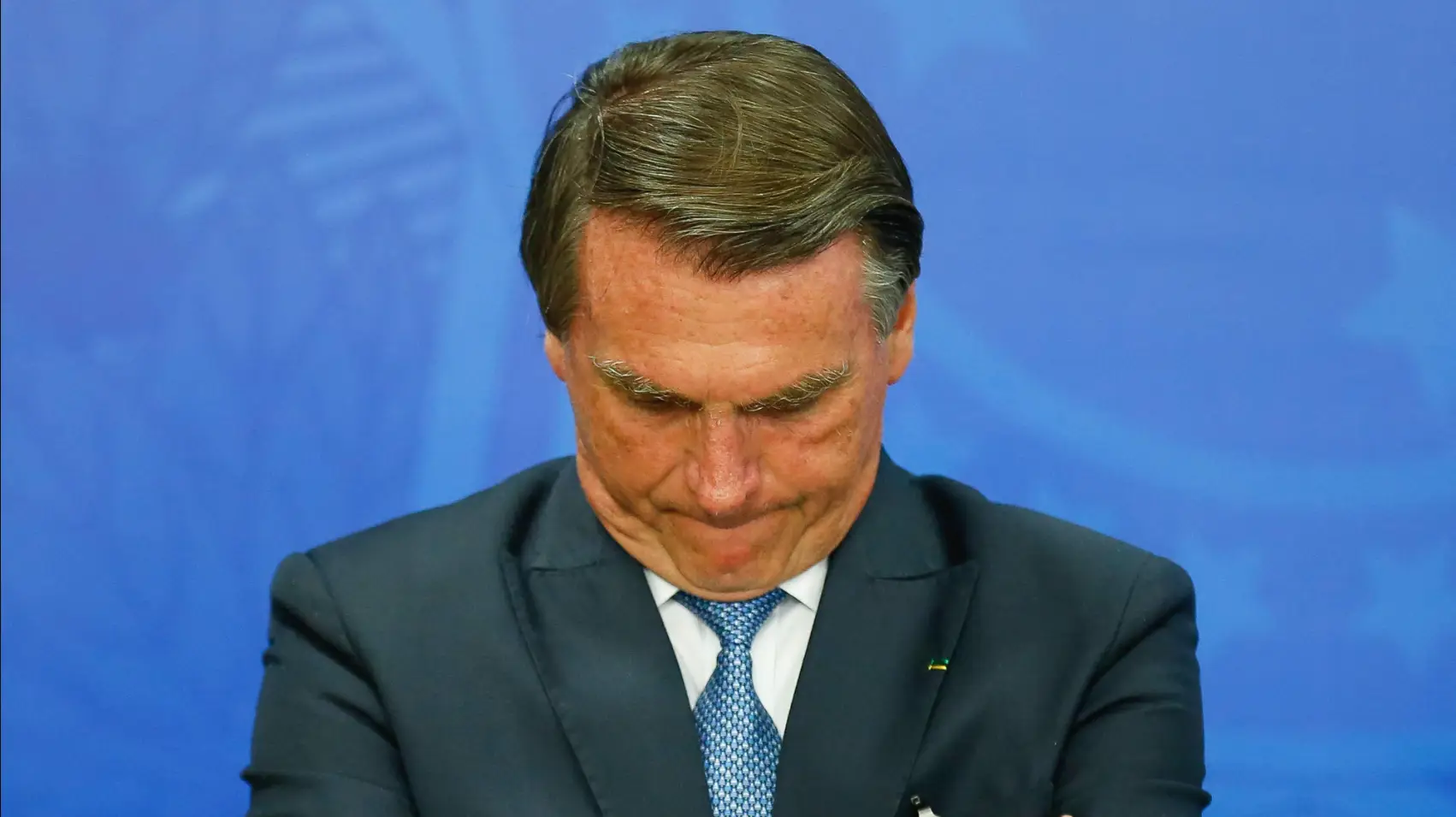El 11 de septiembre se vivió un momento sin precedentes en la historia política de Brasil y América Latina: la máxima corte de justicia del país, el Supremo Tribunal Federal (STF), declaró culpable a Jair Messias Bolsonaro por su intento de golpe de Estado entre 2022 y 2023.
El evento fue celebrado como un punto de inflexión en un país con una larga historia de impunidad frente a las intervenciones militares. En este sentido, el contraste con lo sucedido en el pasado con algunos de sus vecinos es llamativo. En Argentina, la dictadura fue seguida por amplios juicios a los militares responsables de violaciones a los derechos humanos. En Uruguay se procesó al dictador Juan María Bordaberry, y en Chile, aunque los juicios fueron más limitados, se desarrolló una amplia cultura de la memoria institucionalizada mediante museos y políticas de reparación histórica.

Brasil, en cambio, recuperó la democracia en 1985 tras un prolongado proceso de transición pactada que permitió a los miembros de las Fuerzas Armadas evitar ser juzgados y conservar una amplia influencia en la política y la sociedad.
Sin embargo, esta vez la condena a Bolsonaro por planificar un golpe de Estado incluyó también a miembros de las Fuerzas Armadas de alta jerarquía, entre ellos el excomandante de la Marina, así como otros generales importantes. En tiempos en que el sistema democrático liberal parece amenazado en múltiples frentes, el caso brasileño ofrece lecciones valiosas que es importante analizar, aunque también revela limitaciones que no deben ignorarse.
4 lecciones del caso brasileño
La defensa de la democracia brasileña fue posible gracias a la acción de diversos actores que, pese a sus diferencias e intereses, apostaron por la continuidad de un sistema abierto, basado en elecciones competitivas y en derechos ciudadanos.
En primer lugar, la defensa del sistema político se materializó gracias a una clase política dispuesta a llegar a acuerdos. En 2022, Lula da Silva construyó un frente amplio que incluyó como vicepresidente a Geraldo Alckmin, histórico dirigente del “Partido da Social Democracia Brasileira” (PSDB) y antiguo rival electoral.
Que los principales contendientes de los años noventa y dos mil se unieran en torno al objetivo de evitar la reelección de Bolsonaro envió una señal clave a los votantes de centro, muchos de ellos críticos con el “Partido dos Trabalhadores” (PT) de Lula, pero temerosos de un nuevo mandato bolsonarista. Aunque el protagonismo de Alckmin en el gobierno ha sido más limitado de lo que algunos querrían, su presencia en la fórmula fue decisiva para construir credibilidad frente a ese electorado.
En segundo lugar, el caso brasileño ha mostrado la importancia de unos medios de comunicación activos. Los principales medios en Brasil investigaron y documentaron los errores de gestión de Bolsonaro (como en relación con la pandemia) así como sus gestos autoritarios, y a pesar de las amenazas y conflictos con el expresidente, evitaron una actitud complaciente. Este rol cobra más valor si se recuerda que, años antes, el PT acusó a estos mismos medios de haber sido corresponsables en la caída de Dilma Rousseff.
En tercer lugar, es imposible imaginar este resultado sin la existencia de un sistema de justicia independiente. En un contexto regional marcado por liderazgos personalistas y populistas, el sistema de justicia brasileño demostró capacidad de actuar como contrapeso del poder Ejecutivo. En múltiples ocasiones, Bolsonaro intentó coaccionar, incluso insinuando el uso de las Fuerzas Armadas, y recientemente, la administración de Trump ha usado mecanismos de presión económica e institucional para intentar obtener un resultado favorable para su aliado político. En este contexto, el sistema de justicia brasileño ha reafirmado su autonomía y la sentencia del STF confirma que un poder judicial celoso de su independencia es la base fundamental de un verdadero Estado de derecho.
Finalmente, pero no menos importante: Fuerzas Armadas comprometidas con su función institucional. Bolsonaro buscó apoyo militar para evitar el traspaso de poder, pero solo encontró un respaldo parcial. El comandante de la Marina manifestó disposición a colaborar y puso a disposición sus tropas, pero tanto el Ejército como la Fuerza Aérea se opusieron. A pesar de sus diferencias con Lula, la negativa militar a romper con el Estado de derecho fue decisiva para la supervivencia democrática.
Es fundamental tener cuerpos de seguridad no politizados. En última instancia, la suerte de la democracia brasileña se decidió en algunas pocas reuniones y el resultado pudo haber sido diferente. Pero también este episodio muestra que, dentro de las Fuerzas Armadas, existe una verdadera comprensión de su rol institucional.
Preocupaciones por el futuro de la democracia en Brasil
La condena de Bolsonaro y su inhabilitación para las próximas elecciones no implican que la democracia brasileña esté plenamente a salvo. Existen al menos tres factores de preocupación.
En primer lugar, la dependencia del clima político. Aunque las instituciones judiciales brasileñas son claramente competentes y profesionales, en otras ocasiones han demostrado vulnerabilidad frente a los cambios de contexto. El famoso caso “Lava Jato” es ilustrativo: hace una década fue celebrado como una cruzada contra la corrupción, pero en los últimos años muchas de sus sentencias fueron anuladas debido a una combinación de irregularidades procesales y cambios en el entorno político. Este precedente muestra que, en el futuro, las condenas actuales podrían revertirse.
En segundo lugar, el oportunismo de la mayoría de los partidos políticos. La fragilidad institucional del sistema partidario brasileño sigue siendo un riesgo para la democracia. Algunos partidos perciben debilidad en el PT y en Lula de cara a las próximas elecciones y buscan captar al electorado bolsonarista, aun a costa de pactar con sectores que amenazan la institucionalidad brasileña.
Eduardo Bolsonaro ha afirmado que el sucesor de su padre deberá comprometerse a liberarlo, incluso mediante coerción sobre el STF. Y Tarcísio de Freitas, gobernador de São Paulo y favorito para competir con Lula, ha radicalizado su discurso: impulsa un proyecto de amnistía en el Congreso y cuestiona la legitimidad del STF. Aunque suele ser retratado como un perfil más técnico en comparación al núcleo duro del bolsonarismo, su estrategia actual prioriza la carrera presidencial sobre la estabilidad del sistema político a mediano y largo plazo.
Para finalizar, la persistencia de la polarización social. Las bases bolsonaristas continúan siendo numerosas y perciben el juicio como un proceso político más que judicial. La desigualdad económica, la limitada capacidad para atender demandas sociales y el tono de la confrontación política alimentan la polarización y la radicalización. Aunque el disenso es normal en democracia, la intensidad del conflicto en Brasil plantea el reto de encauzar estas energías hacia vías institucionales que reconozcan el voto como único medio legítimo de resolución.
La consolidación de la democracia en la región ha sido un camino largo y complejo que probablemente no tenga un momento conclusivo. Pero en el contexto actual de inestabilidad política global, el caso brasileño envía un mensaje positivo y refuerza la idea que la democracia liberal sigue siendo la única alternativa real a la violencia y el autoritarismo.













